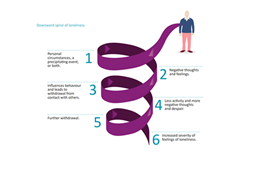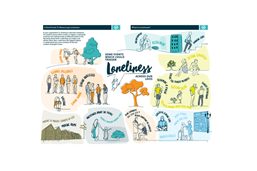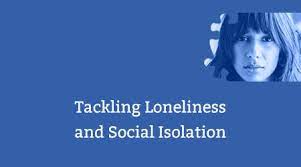Social Isolation and Loneliness
Loneliness is a subjective, unwelcome feeling of lack or loss of companionship, which happens when there is a mismatch between the quantity and quality of the social relationships that we have, and those that we want (Perlman and Peplau, 1981)
This definition refers to the cognitive discrepancy theory, where loneliness is regarded as a discrepancy between the desired and achieved levels in the quality and quantity of social relations.
Everyone feels lonely from time to time, and this is part of being human. But when people feel lonely most or all of the time, it can cause serious harm.
Feeling lonely frequently is linked to early deaths. Its health impact is thought to be on a par with other public health priorities like obesity or smoking. Research shows that loneliness is associated with a greater risk of inactivity, smoking and risk-taking behaviour increased risk of coronary heart disease and stroke an increased risk of depression, low self-esteem, reported sleep problems and increased stress response and with cognitive decline and an increased risk of Alzheimer’s.






